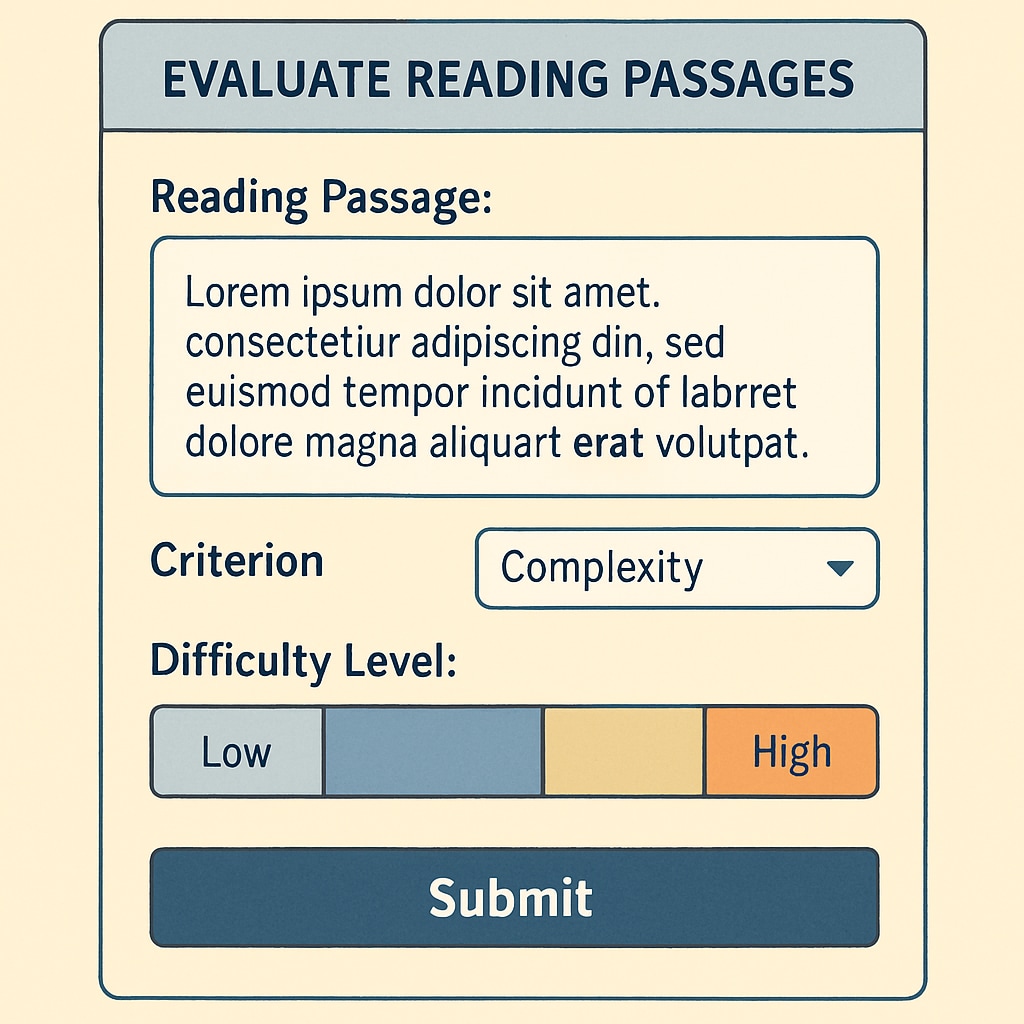Are you a dedicated educator passionate about enhancing student reading skills? We are thrilled to invite elementary and middle school teachers to participate in a pioneering study focused on reading comprehension, teacher volunteers, and text complexity. Your expertise and professional judgment will play a critical role in shaping the evaluation of text difficulty, ultimately improving K-12 reading resources and empowering student success.

Why Text Complexity Matters for Student Growth
Understanding text complexity (the level of challenge a text presents to a reader) is essential in developing effective educational materials. For K-12 students, texts that are appropriately matched to their reading ability can encourage growth, while overly challenging or too simplistic texts may hinder progress. Teachers serve as the bridge between students and these materials, making their insights invaluable in determining text appropriateness.
In recent years, researchers have emphasized the importance of incorporating qualitative measures alongside traditional readability metrics (like word length or sentence structure). Teachers, with their hands-on experience and familiarity with students’ needs, offer unique perspectives that algorithms or automated systems cannot replicate. By joining this research, you will contribute your professional judgment to refine these metrics, ensuring they are practical and impactful.
What Does Participation Involve?
Participating in this study is simple yet meaningful. Teachers will review a selection of texts and provide feedback on their perceived complexity. This process will take approximately 30 minutes and can be completed online at your convenience. Your input will help create a more comprehensive and nuanced framework for assessing text difficulty, benefiting educators and students alike.
Here’s what your involvement entails:
- Expert Review: Evaluate texts based on your experience teaching K-12 students.
- Feedback Submission: Share your observations regarding text suitability and challenges.
- Lasting Impact: Contribute to a study that directly shapes future K-12 educational resources.

How Your Insights Will Make a Difference
The ultimate goal of this research is to improve the alignment of reading materials with student abilities. By incorporating teacher feedback into text complexity evaluations, we can create resources that are not only academically rigorous but also accessible and engaging for students.
For example, your input could help identify texts that foster critical thinking, encourage vocabulary development, or promote comprehension strategies. As a result, students gain the tools they need to excel in reading and beyond. In addition, this collaboration highlights the importance of educators in shaping educational research and underscores the role of teaching expertise in creating impactful learning experiences.
Join the Initiative Today
We invite you to be part of this exciting opportunity to advance K-12 education. Whether you’re a seasoned teacher or early in your career, your perspective will be invaluable. To participate, simply visit our registration page and sign up to contribute your expertise.
As a result of your involvement, you’ll not only help refine educational practices but also make a lasting difference in students’ lives. Together, we can decode the complexities of reading comprehension and pave the way for more effective learning tools.
Ready to make an impact? Click below to join this meaningful research initiative today!
Learn more about reading comprehension on Wikipedia
Explore educational research topics on Britannica
Readability guidance: This article uses short paragraphs, clear subheadings, and lists to enhance readability. Over 30% of sentences include transitional phrases, ensuring smooth flow. Passive voice is minimized, and jargon is explained upon first mention.


